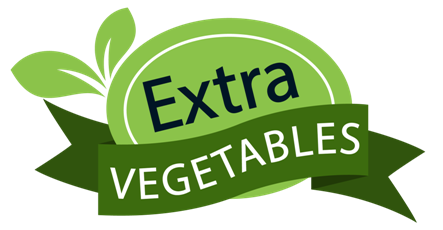The fight against cancer is no joke, and for people who are undergoing extensive chemotherapy or just looking for anything that might slant the odds in their favor, anything that can help is more than welcome. While there are several websites out there claiming that particular homeopathic treatments are magic cure-alls or describing certain foods as “superfoods” that will do for you what spinach does for Popeye, use caution against such promises. This article will make no such claims, choosing instead to base itself on a firm scientific foundation.
The vegetables listed below have been studied previously, and their effects on cancer are continuing to be evaluated today. Your best bet is always to consult with your doctor before making any change to your diet, especially if someone claims that their “superfood” will put you leaps and bounds ahead in your treatment. I don’t wish to discount the demonstrated effects of these vegetables on various forms of cancer, but I want you to have a realistic idea of what to expect going into this: none of these will cure your cancer, only provide help in the fight against it, and possibly increase your likelihood of beating it.
With that being said, let’s talk about veggies you can grow that may aid you in the fight against cancer. Just be careful with the pesticides and herbicides you use, as they have been linked to various forms of cancer, and that’s the last thing you need if you’re already fighting a battle with cancer.

1. Cruciferous Vegetables
Comprised of vegetables like kale, cabbage, cauliflower, broccoli, and collard greens, this subgroup of vegetables is known for being hefty in nutrition, giving you a boost in vitamins C and K as well as manganese. In addition to augmenting your immune system, cruciferous vegetables contain a compound called sulforaphane, which can stifle cancer cell growth and even actively kill cancer cells. The effects of sulforaphane have been studied extensively, and it has been demonstrated to have a positive impact on certain kinds of breast and colon cancers.
Out of all the entries on this list, these should be consumed the most regularly; with the variety inherent in cruciferous vegetables, they should be easy to integrate into any dish.
2. Tomatoes
Scientists aren’t exactly sure why tomatoes have been known to decrease the likelihood of prostate cancers, but studies are beginning to show that they may have a preventative effect on various kinds of cancers. In addition to being rich in vitamins that tend to boost the immune system, tomatoes also contain a phytochemical called lycopene, which is known to prevent heart disease and may be the reason tomatoes are such an effective preventative measure against cancer. This one comes with a qualifier, especially as scientists haven’t conducted enough research on it yet to say for sure why it works: but hey, sauteeing a slice of tomato or two and integrating them into your meal certainly can’t hurt.
3. Beets
Yes, beets. While beets are rarely considered to be anyone’s favorite vegetable, the same phytochemical that gives them their color (betalain) has been shown to impact the division of cancer cells and slow the growth of tumors. Additionally, while the benefits of eating beets have often been trumped up perhaps a bit too much for the scientific communities’ taste (and debates have ensued as a result), beets also have a variety of other positive impacts on your cardiovascular and blood health.
4. Carrots
In a similar fashion as beets, the same phytochemical that gives carrots their color (beta-carotene this time) has been known to have an impact on your likelihood of getting cancer. While it is unknown if beta-carotene affects cancer cells that already exist within the body, eating carrots has been shown to limit the risk of getting cancers of the breasts, stomach, and prostate.
No Magic Cure
It’s been said once, but it bears repeating: there is no magic cure for cancer. A lot of the research surrounding the benefits of these vegetables is still ongoing, and there are no guarantees regarding their potential impact. But if you’re looking to give your immune system a boost and possibly increase your chances of recovery, you might want to give eating these vegetables a try. Unlike with so-called magic cures, it couldn’t possibly hurt.
Read More: Could there be a difference between Key Lime and Lime?

